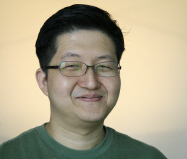III Brazilian Symposium on Software Components, Architectures, and Reuse
Tutorials
Available soon.
Keynotes
Keynote 1 - Len Bass: Exploring the Architecture of Ultra Large Scale systems

Abstract: An Ultra Large System is a system with no central control and composed of multiple interacting components solving a variety of different problems. Canonical examples are the internet or the US Electric grid. This talk will explore some of the characteristics of the architecture of such systems. We explore the architectural characteristics by examining the governance, the characteristics of Ultra Large Scale Systems, and systems that have some of the characteristics of Ultra Large Scale Systems
Len Bass is a Senior Member of the Technical Staff at the Software Engineering Institute (SEI). He has written two award winning books in software architecture as well as several other books and numerous papers in a wide variety of areas of computer science and software engineering. He has been a keynote speaker or a distinguished lecturer on six continents. He is currently working on techniques for the methodical design of software architectures, to understand how to support usability through software architecture, and to understand the relationship between software architecture and global software development practices. He has been involved in the development of numerous different production or research software systems ranging from operating systems to database management systems to automotive systems.
Keynote 2 - Jaejoon Lee: Service-Oriented Product Lines: Concepts, Practice, and Beyond

Abstract: The service orientation (SO) is a relatively new paradigm for software development: systems are no longer developed, integrated, and released in a centrally synchronized way, but services are developed and deployed independently and separately in a networked environment. This is a promising candidate for supporting continuously changing user needs and expectations, as more and more software systems are connected to the Internet. That is, their evolution could be supported and accelerated by dynamically adding and integrating services through the Internet. Adopting SO in practice for developing reusable core assets of a product line, however, has uncovered several challenging issues, such as how to identify services, determining configurations of services that are relevant to users' current context, and maintaining system integrity after configuration changes.
In this talk, I will first introduce some related and relevant concepts in the literature and explain a method that was proposed to addresses those challenges by adapting a feature-oriented product line engineering approach. The proposed method is the novel fusion of the two research themes of services and software product line engineering. The method is based on the feature analysis technique that enables us to identify service features of a product line and organize them into a model called a feature model. The method is notable in that it guides developers to identify services at the right level of granularity, to map users' context to relevant service configuration, and to maintain system integrity in terms of invariants and pre/post conditions of services.
Dr. Jaejoon Lee is a Lecturer in the Computing Department from January 2008. Before coming to Lancaster, he worked as a scientist and project manager at Fraunhofer Institute for Experimental Software Engineering (IESE) in Kaiserslautern, Germany, from October 2005 to December 2007. He also worked as an associate researcher at the R&D Centre of LG Electronics in South Korea, from July 1993 to February 2000. He holds a Ph.D. in Computer Science and Engineering, an MS in Computer and Communications Engineering, both from POSTECH in South Korea, and a BS in Mathematics from Sogang University in South Korea.





 Português
Português Ne
Ne